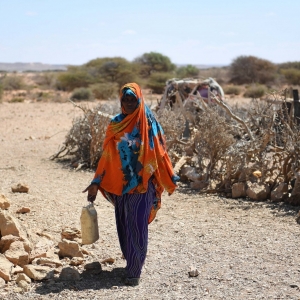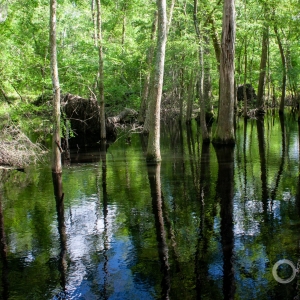Federal Water Tap, June 10: EPA Tries to Limit State Clean Water Act Reviews
The Rundown
Disputes over energy infrastructure that states rejected because of water pollution concerns is at the center of an EPA memo seeking to limit state authority. President Trump signs a $19.1 billion disaster aid bill. The White House rejects an intelligence analyst’s written statement for a House climate change hearing. Transportation regulators release a report on a barge anchor that struck Great Lakes oil pipelines, an incident that occurred in April 2018. The Army Corps delays opening a rarely used Mississippi River spillway. EPA and FEMA coordinate on disaster recovery funding. The Commerce Department looks at barriers to supplying “critical minerals.” The Lake Erie algal bloom forecast worsens. And lastly, the Army Corps proposes adding eight species to a national wetland plants inventory.
“We assess that such impacts from climate change almost certainly will have an increasingly significant direct and indirect effect on the social, political, economic, and security challenges faced by the United States and other countries during the next few decades. The combination of other environmental stresses and human activities makes it challenging to discern the national security implications of climate change in isolation. In many cases, climate change is likely to exacerbate existing stresses, such as water or food shortages that worsen social and political conditions in a country.” — Written statement from Peter Kiemel, counselor to the National Intelligence Council, who testified at a House Intelligence Committee hearing on June 5 on the national security implications of climate change. Two of the three witnesses provided written statements for the record. The third, a senior intelligence analyst at the State Department, did not. The Trump administration did not approve it, the Washington Post reports. The administration disagreed with how Rod Schoonover presented climate change science.
By the Numbers
#2: May was the second wettest month on record for the lower 48 states. Not the second wettest May. The second wettest of any month since recordkeeping began in January 1895. The 12 months ending in May were also the wettest such period on record. (NOAA)
8,093: Number of plant species in the 2018 update to the National Wetland Plants List, an increase of eight. The list is used in determining wetland boundaries. (Army Corps of Engineers)
News Briefs
Clean Water Act Fight
The U.S. Environmental Protection Agency published guidance on the use of the Clean Water Act in permitting infrastructure projects.
At issue is Section 401 of the Clean Water Act, which allows states and tribes to reject projects within their borders that would pollute or harm rivers. Recently states have used Section 401 to deny permits for fossil fuel infrastructure: New York, for example, blocked the Constitution natural gas pipeline on the grounds that it would damage streams.
The EPA says that the purpose of its guidance is to implement President Trump’s April 2019 executive order to facilitate construction of oil and gas infrastructure. The agency’s guidance says that states should limit their reviews to one year and restrict their assessments to water quality impacts.
One of the groups that has criticized the EPA’s attempt to narrow the Section 401 process is the Western Governors’ Association. Its members “remain concerned” about the EPA guidance, according to a statement provided to Circle of Blue.
“The agency’s constricted timeline for this action has not allowed for adequate consultation with state and local officials; nor has EPA addressed numerous issues and questions posed by state officials in its administrative docket,” according to the WGA.
The WGA said in a May 24, 2019, letter to Andrew Wheeler, EPA administrator, that the agency has not explained the need for the guidance.
Disaster Aid Approved
President Trump signed into law a $19.1 billion disaster aid bill. The money is directed at the victims of recent floods, fires, and hurricanes, and toward repairing the damage.
The bill includes $3 billion to compensate farmers for crop and livestock losses, $3.3 billion for the Army Corps of Engineers to rebuild levees and other infrastructure, and $2.7 billion for the Defense Department to cover damage to military bases and veterans’ facilities.
In context: Two Hurricanes, Two Floods: North Carolina Town Fights to Stay Alive
Morganza Spillway Opening Delayed
The Army Corps of Engineers has postponed indefinitely the opening of a rarely used spillway in Louisiana that diverts high flows away from the Mississippi River.
Since it will cause flooding downstream, the Army Corps will open the Morganza spillway only if necessary. Corps officials initially thought they would need to open the pressure-release valve on June 2, but the river has not peaked as quickly or as high as thought.
One of the reasons for the lower peak is, oddly enough, breached levees upstream. According to FEMA, the breaches, plus overtopping of levees have allowed flood waters to spread out over more territory and reduced the downstream peak.
Disaster Recovery Funds
The U.S. Environmental Protection Agency and the Federal Emergency Management Agency signed an agreement that is designed to quicken disaster recovery spending.
The agreement allows communities to tap into a low-interest loan fund that is designated for water infrastructure. The loan could be used to cover the local share of a recovery project that requires costs to be split between federal and local agencies. Or the loans could be used to cover costs until FEMA reimbursements are available.
Water Bills in Congress
Bills on protecting coastlines and flood research were introduced last week.
- Sen. Kamala Harris (D-CA) introduced the Living Shorelines Act, which authorizes a $50-million-a-year grant program for using natural coastal ecosystems to guard against erosion, storm surges, and sea level rise. The program will be administered by NOAA.
- A bill from Rep. David Loebsack (D-IA) establishes a national flood research center. The center’s mission: to look comprehensively at floods, from hydrology and economics to risk management and policy.
Studies and Reports
Anchor Strike Report
Transportation safety regulators released a report on an errant anchor that struck and damaged energy infrastructure in the Straits of Mackinac in April 2018.
A barge anchor struck the Line 5 oil pipelines, which had superficial damage, as well as an electrical transmission cable, which spilled 800 gallons of fluid.
Owned by the Canadian company Enbridge, the pipelines are the subject of strident debate in Michigan, with environmental groups and Indian tribes calling for the aging oil lines to be shut down before a catastrophic rupture occurs.
Critical Minerals
The Commerce Department released a report on securing supplies of minerals that are critical to the U.S. economy or national security.
One of the goals included in the report is to reassess the Clean Water Act Section 404 permitting process, which involves disposing of fill material into waters of the United States. The Trump administration is preparing a new definition for what waters are counted.
The report was ordered by President Trump and follows a previous Interior Department action that designated 35 minerals as “critical.”
On the Radar
Lake Erie Algae
Each of the last four weeks the forecast for the extent of Lake Erie’s algal bloom has grown worse. NOAA and Heidelberg University researchers expect this summer’s bloom to be one of the worst since 2002.
That’s because a wet spring is flushing more phosphorus into the beleaguered lake.
The forecasts are for the size of the bloom, not its toxicity.
In context: With Heavy Spring Rains, Lake Erie Algal Bloom Forecast Gets Worse and Worse
Congressional Hearings
Another busy week:
- On June 11, four former EPA administrators will discuss the agency’s mission and its current direction with the House Energy and Commerce Committee.
- On June 12, the House Committee on Oversight and Reform discusses disaster recovery in an era of climate change.
- In a related hearing on June 12, the Committee on Homeland Security hosts the FEMA administrator to discuss the agency’s readiness for future disasters.
- The Senate Committee on Environment and Public Works is scheduled to hold a hearing on June 12 on the Waters of the United States rule.
Federal Water Tap is a weekly digest spotting trends in U.S. government water policy. To get more water news, follow Circle of Blue on Twitter and sign up for our newsletter.
Brett writes about agriculture, energy, infrastructure, and the politics and economics of water in the United States. He also writes the Federal Water Tap, Circle of Blue’s weekly digest of U.S. government water news. He is the winner of two Society of Environmental Journalists reporting awards, one of the top honors in American environmental journalism: first place for explanatory reporting for a series on septic system pollution in the United States(2016) and third place for beat reporting in a small market (2014). He received the Sierra Club’s Distinguished Service Award in 2018. Brett lives in Seattle, where he hikes the mountains and bakes pies. Contact Brett Walton






Leave a Reply
Want to join the discussion?Feel free to contribute!